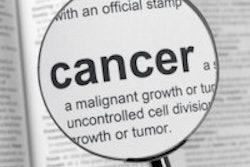The American Cancer Society (ACS) has awarded a $1.7 million grant to Philadelphia researchers to investigate factors that may contribute to the racial disparities seen among those diagnosed and treated for head and neck cancers (HNC) -- specifically head and neck squamous cell carcinoma (HNSCC).
While head and neck cancers account for only 3% of all cancers in the U.S., a disproportionately high number of African Americans are affected. Recent research has shown that other biological factors, and tobacco and alcohol use, may have a role in the development of these cancers. Other studies suggest that low socioeconomic status and poor healthcare access are the main contributors to this disparity.
"Studies on genes involved in tobacco and drug metabolism and efflux suggest an association of genetic variants with head and neck cancer risk and survival in populations of European and Asian ancestries," stated Camille Ragin, PhD, an associate professor at the Fox Chase Cancer Center and the study's principal investigator, in a press release. "Genetic variants associated with the survival disparity of head and neck cancer in African-derived populations, however, is not yet clear."
An accumulation of cancer-causing compounds occurs when products from tobacco smoke enter the body's cells, in some cases enabled by alcohol, and are broken down by proteins. Variations in the genetic code that generate these proteins can lead to differences in their function and could affect the way disease may develop or respond to drug therapy. In many cases, the genetic makeup of these proteins differs according to race.
"Our group suggests that genetic factors and the environment work together to contribute to the observed racial disparities in HNSCC incidence and survival," Ragin said. "With this grant we will be able to use novel techniques to look for variations in the genetic makeup in these genes that are unique to African Americans."
These findings may help improve early detection and cancer prevention interventions by providing insight into the biology of the disease and factors that contribute to racial disparities.



















